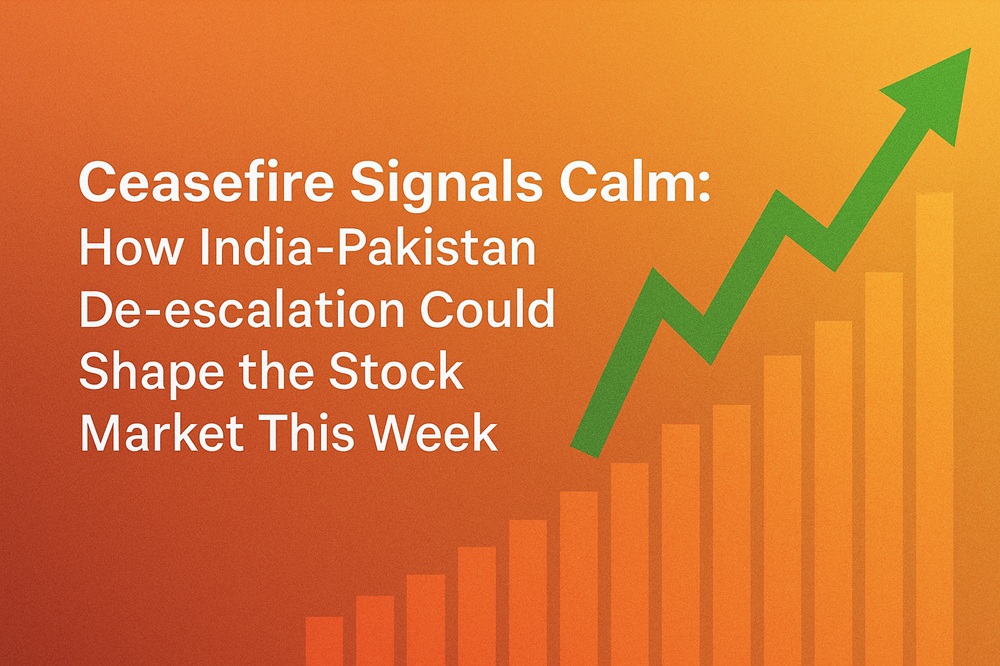After days of heightened tension between India and Pakistan, the sudden announcement of a ceasefire has shifted the narrative from confrontation to cautious optimism. For Indian investors, the timing of this geopolitical development is critical — just ahead of the market opening on Monday. While headlines have focused on diplomacy and defense, the financial world is asking: What does this ceasefire mean for the stock market?
Relief from Uncertainty
Markets don’t react well to surprises — especially when they involve cross-border conflict. Last week’s sell-off in sectors like banking, infrastructure, and travel reflected growing investor anxiety. With the ceasefire now in place, we could see a short-term bounce in market sentiment, driven by reduced geopolitical risk.
Historically, Indian markets have responded positively to de-escalation between the two nuclear neighbors. While no two incidents are identical, the broader pattern suggests that peace — or even the perception of it — tends to stabilize investor nerves.
What Sectors Might See Movement?
Here's a sector-by-sector breakdown of what could unfold on Monday:
-
Travel, Tourism & Aviation: These industries are among the first to react to geopolitical stability. A ceasefire may fuel expectations of uninterrupted regional movement and sentiment-driven buying in these stocks.
-
Banking & Financial Services: With risk premiums easing, banking stocks may regain ground. Lenders benefit from a more stable macroeconomic environment, especially when foreign investors are more confident.
-
Defense Stocks: Companies linked to defense contracts saw interest spike during the conflict. A pullback is possible as immediate tension eases, although long-term contracts may still support fundamentals.
-
Energy & Commodities: Any reduction in conflict-related disruption could stabilize oil prices — a boon for Indian importers. That’s good news for both the economy and the broader equity market.
The Role of Foreign Investors
Foreign institutional investors (FIIs) are highly sensitive to geopolitical shocks. While net outflows were recorded last week, a return to calm may encourage renewed inflows, especially as India remains a high-growth market in a still-uncertain global economy.
Monday’s opening could therefore be a litmus test: do FIIs view the ceasefire as a temporary truce or a genuine turning point?
Market Psychology and the Bigger Picture
Investor psychology plays a powerful role in shaping short-term moves. Even a fragile peace can offer the market just enough comfort to refocus on fundamentals — corporate earnings, economic data, and policy signals.
Moreover, with key inflation figures and Q4 earnings around the corner, the market may pivot quickly from conflict concerns to macro indicators. The ceasefire doesn’t erase risk, but it helps investors breathe a little easier heading into the week.
Final Thoughts: Calm, But Stay Watchful
While a positive opening for the Indian stock market looks likely, investors should temper their optimism with realism. Geopolitical developments are rarely linear. The market will reward clarity and sustained calm — not just announcements.
If the ceasefire holds, we may witness a return to growth-oriented themes. If tensions flare again, volatility could return with equal force.
Bottom Line: The ceasefire offers the Indian stock market a much-needed pause. It may not be a green light for aggressive buying, but it’s certainly a yellow light — encouraging investors to proceed, but with awareness.
